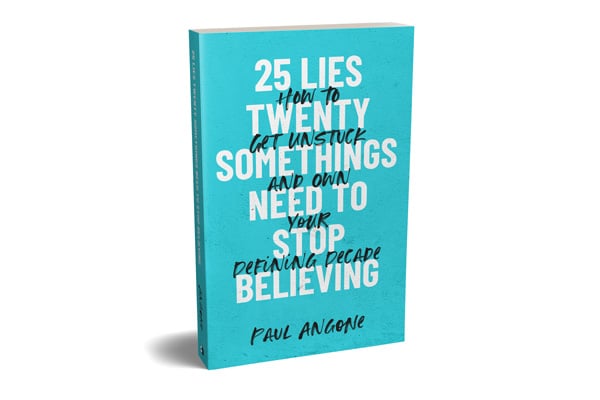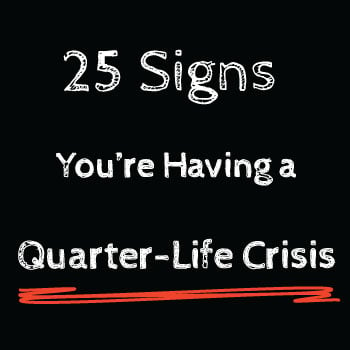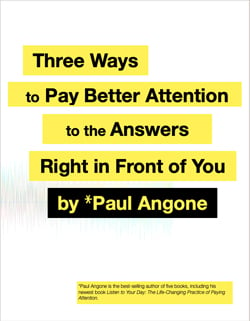Bashing Millennials on the internet these days has become more popular than Kim Kardashian and videos of cats afraid of cucumbers — combined.
(Maybe a bit of an overstatement, but I’m a Millennial so you’ll have to excuse my entitled view and lack of common sense…See what I did there…)
And at the core of the fierce Millennial debate there seems to be one question at the forefront – What’s wrong with Millennials these days?
Like The Most Interesting Man in the World — Millennials seem to be a walking paradox that makes for great entertainment.
Entitled. Narcissistic. Lazy. The Facebook Generation all about instant gratification. Generation Me. These are the words used to describe the “Millennial Problem.”

Why is it that stereotyping certain topics is completely taboo, yet stereotyping an entire generation is all the rage?
Maybe it’s not entitlement, narcissism or laziness that is expanding the chasm between the generations these days. Maybe the generational chasm is growing because of all these stereotypes.
The Danger of Generational Stereotypes
We need to stop throwing out the same tired buzzwords to define the “Millennial problem.” (Click to tweet that)
We read a NY Times or Huffington Post article, or people watch someone under 25-years-old, and all of the sudden we think we have Millennials pegged. Grand, sweeping, headline grabbing, generalizations somehow become the norm.
There are 1.3 billion Millennials in the world. That’s like taking the United States and China and replacing every person currently living there with a Millennial.
Each of these “Millennials” are complex, diverse, unique individuals.
Millennials are people, not a catch-all marketing bucket. (Click the tweet that)
Many of us are not taking the time to truly understand Millennials because it’s much easier to have the three word answer than to take the time and effort to ask the right questions.
Buzzwords can’t be gospel truth.
Some Millennials will act entitled, some won’t.
Some Millennials will have an IV of technology hooked to their veins. Some still like the feel and smell of a paper book.
Some Millennials will persevere and work their ass off. Other Millennials will take repeated naps and watch Netflix.
Some Millenials will get married young. Some will cast marriage off like a pair of worn tennis shoes.
Some are immersed in social media and their iPhone, and yet at the same time feel very much alone.
Some Millennials are struggling with Obsessive Comparison Disorder. Some aren’t.
Some Millennials embrace being called a Millennial. Others can’t stand it.
As I wrote in my book 101 Secrets for your Twenties, “why do we think we can sum up an entire generation with a simple label like a box of Wheat Thins?”
Let’s be careful not to treat generalizations as facts. Because the problem is that these stereotypes become a self-fulfilling prophecy.
Millennials Become What You Label Them
Stereotypes become your reality.
If you think Millennials are entitled, then you’re going to continually look at Millennials through that lens. Your perception will define your reality. You won’t look for examples of self-sacrifice or hard work because that would be contrary to the truth you already “know”.
Because you’ve read an internet article on Millennials doesn’t mean you understand them. (Click to tweet that)
Because you have twentysomething children does not mean you know what all twentysomethings are going through.
Millennials, just like every generation, have grown up in a wide array of circumstances and backgrounds specific to this time in history. They’re going through a real struggle of transition, uncertainty, doubt, depression, and frustration as life has turned out nothing like they planned.
And just because you don’t want to acknowledge that the struggle Millennials are experiencing is legitimate, doesn’t mean it’s not happening.
I have two books geared directly for Millennials in their twenties and thirties. I’ve spent close to a decade researching emerging adulthood and Millennials, writing about what is truly at the heart of the twentysomething struggle. Yet after all of that I will not be so brash or arrogant to say that I have Millennials completely pegged.
So how do we move beyond stereotypes and actually bridge the Generational-Understanding-Gap towards healthy, productive, edifying relationships between generations?
Open, Authentic, Conversations
Boomers, Gen X and Millennials need to come to the table and have open, honest conversations.
Boomers and Gen X would do us well to remember, and Millennials would do well to forget.
- Boomers need to remember what it was like to be in their twenties to help Millennials through their questions.
- Millennials need to forget about having all the answers, and be open and vulnerable to learning from those who have gone before.
Parents, bosses, pastors remember when you were anxious about the future and overwhelmed with doubt? Where you were barely getting by yourself and struggling to find your place?
Millennials weren’t around when our parents were thick in the struggle.
Millennials didn’t see our parent’s sacrifice as much as we saw our parent’s success.
Leaders need to engage Millennials with authentic, transparent communication.
Boomers the more real and honest you can be about the difficulties you faced growing up, the closer the Understanding-Gap will become.
If bosses can go back and remember how they felt when they were nothing in the office, they can help empathize with twentysomethings and help them find productive ways to grow, instead of casting them aside as lazy.
The biggest obstacle facing most Millennials today in the office is not a lack of work ethic, but a lack of understanding.
How can leaders come alongside Millennials and help co-create their career path?
Millennials are desperate for mentors who are willing to tell the truth of their own struggle. (Click to tweet that)
As 77-year-old author Parker Palmer wrote:
“When I was young, there were very few elders willing to talk about their darkness; most of them pretended that success was all they had ever known … I thought I had developed a unique and terminal case of failure. I did not realize I had merely embarked on a journey toward joining the human race.” – Parker Palmer, Let Your Life Speak
Boomers. Millennials. Gen X. There’s similarities in our struggle.
Even though the Internet might disagree, we all are still humans.
The more we can seek to understand and identify with the other side, the less we’ll rely on stereotypes and the Internet to bridge the gap for us.
I’d love to hear from you within the comments below:
Have you experienced stereotypes because of your age?







Paul, I love this! I’m in grad school for communication and we have spent a lot of time discussing generational differences in their use of technology, work style and communication efforts. The difference between generations is never as simple as these articles try to make it out to be. There may be generational commonalities, but when it comes down to it — we’re all individuals. There are lazy, self-entitled and instant gratification seeking people in every generation and these stereotypes are soooo frustrating when you’re trying to be taken seriously in the workplace. Thanks for writing this!
–Kelsey
Very well said Kelsey. Yes when you sit down and dissect these stereotypes it’s clear how problematic they are, and yet we keep falling back on them. Thanks for helping fight the good fight!
Couldn’t agree more. Very well said, sir.
Thanks! As an “old Millennial” I feel it my duty to stick up for us all.
Agreed! Its about time we start looking at our differences from a place of equity and respect. In my work as an organizational trainer I try to help teams and organizations understand the value of difference and how to leverage it to create effective teams. And generational differences are no different from other cultural differences, other than the fact that is much more socially acceptable to be ageist than racist. We would all get through this much easier if the older folks stopped complaining and started coaching and mentoring.
“We would all get through this much easier if the older folks stopped complaining and started coaching and mentoring.”
Yep. If our response was a mentoring relationship on both sides it would clear up so many of the misconceptions and misunderstandings. Thanks for the work you do Tamara
My absolute pleasure!
Good for you, Paul. This is the most update article that I’ve read. Things always focus on the deterioration of society (which is definitely happening) and other sad things. Thanks for standing out and being a positive voice. We aren’t all bad 😉
Thanks again Paul!
Thanks Katie!
Paul, as always, great article! We included you in our very first weekly round-up!
http://www.asktheyoungprofessional.com/weekly-round-up-december-6-2013/
Great article. I’m a Boomer (59) and love being around Millennials. In fact, I’ve worked to help our organization understand Millennials — in every presentation and discussion, I **ALWAYS** remind folks that while research shows us what a general trend, characteristic, or approach might be, the “profile” doesn’t describe any individual.
I am not sure if I have felt the stereotype from those outside of their twenty-somethings as much as I have heard these things ring true for my peers and me. In the past week alone, I have had 5 conversations with friends who are in their twenties about wanting to quit their job/school, not having vision for their life, feeling burntout on the regular things they do, and having some sort of desire to really live, experience and feel life more truly and more deeply. Our generation is not self-centered or lazy, but I think we have some sort of drive to more deeply know life. We are not about just climbing the ladder rung that is in front of us by the standards that have been set by society, but we are in a constant battle of trying to follow our heart (if we can even understand it) and doing enough to provide for ourselves, and please those around us who love us and care…
Great article!
Wonderful thoughts Amanda! I think you articulated our generations mindset and drive extremely well. I often say that our generations biggest fear is insignificance. And like you wrote, they want to “more deeply know life.” Love that line.
Wonderful thoughts Amanda! I think you articulated our generations mindset and drive extremely well. I often say that our generations biggest fear is insignificance. And like you wrote, they want to “more deeply know life.” Love that line.
Boomer here. I don’t see Boomer’s stereotyping twenty-somethings. I know spouse and I both remember (as if it were yesterday) all the crap we went thru in our 20’s and we are exceedingly empathetic with the millennials. We both go out of our way to encourage those in that generation – both at work and socially. But I keep coming across all these articles that say millennials are lazy, entitled, blah, blah, blah. Are you sure it isn’t your own generation that is perpetuating those stereotypes? No one my age (pushing 60) that I know thinks millennials are any of those stereotypes. In face, everyone I know cringes with sympathy and empathy observing the struggles millennials face.
This article is still super true. One thing you really pin pointed is that the older generations just complain about us but they don’t help us change the way we are to better succeed. Bosses don’t like our work ethic so they fire us and hire an older person. Instead of being mentors to us, giving us advice, and helping us improve in our jobs.
Right on Paul. People need to stop attempting to generalize a generation of ~10 million people. I’m not sure if you saw the “Dear Elders, I’m sorry” video that went viral on social media, but this is a major problem and is sending the wrong message. I appreciate you sticking up for our generation. I actually was involved in a roundup post of sorts in which a bunch of my peers and I responded to Alexis Bloomer, the girl who made the video, and voiced our opinion of her incorrect generalizations: http://prsuit.com/life-in-review/millennial-generation-reacts-alexis-bloomer/ Thanks again for the great insights Paul and speak soon.
— Matt Kohn
There is also the difference of what are aspirations are and what are reality now is. That is something that us Millennials and baby boomers do not understand. We were raised to want what we were given, but in this climate, not possible. The dream house is a good example, which I wrote about here: http://www.adonmoss.com/single-post/2016/10/24/Should-I-Buy-My-Dream-Home-Or-Rent-It